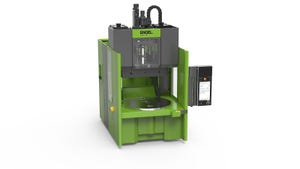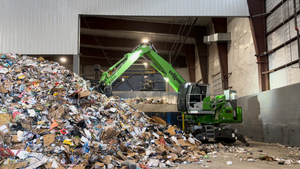Market success and industry recognition for breakthrough PET catalyst technology
Studies on antimony trioxide, the heavy metal catalyst often used in the production of polyethylene terephthalate (PET), have long demonstrated the relative safety of the catalyst. Its migration into food and beverages packaged in PET occurs--when it does occur--at very low levels. Unfortunately, though, it is a suspected carcinogen. So when UK-based Catalytic Technologies Ltd.
April 24, 2014
Studies on antimony trioxide, the heavy metal catalyst often used in the production of polyethylene terephthalate (PET), have long demonstrated the relative safety of the catalyst. Its migration into food and beverages packaged in PET occurs--when it does occur--at very low levels. Unfortunately, though, it is a suspected carcinogen. So when UK-based Catalytic Technologies Ltd. (CTL; Stockton-on-Tees) launched its cutting-edge titanium catalyst technology specifically developed for the industrial production of PET polyester, major industry players around the world stood in line to test it out.
Established in late 2010, CTL launched its patent-pending UP catalyst technology platform in 2013. According to the company, the technology allows catalysts with unique chemical composition to be produced that eliminate undesired side reactions in this application.
In addition to eliminating antimony oxide, the new catalyst offers a range of other benefits. These include high polymer thermal stability, improved brightness and clarity owing to lower impurity content, a significant net reduction in the overall process energy required to produce plastic packaging and, most significantly, lighter bottles without compromising on bottle strength.
In a smart move, the company invested in a continuous pilot unit catalyst trial on Uhde Inventa-Fischer's state-of-the-art polyester 2R-MTR pilot plant. The trial enabled substantial testing of CTL's new UP-catalysts by independent PET polyester production experts to demonstrate the benefits of the catalyst technology compared to the industry antimony reference.
As Dr Alan Cooper, Technical Director, said: "The eco-credentials of our new UP-Technology are indisputable. The UP Technology platform can be modified to act as a drop-in replacement to current heavy metal catalysts for all PET production processes without any compromises."
The market is not alone in welcoming the new catalyst technology. The company has also received the coveted Queen's Award for Enterprise 2014, in the innovation category. These awards are presented annually to companies demonstrating outstanding achievements in the categories of innovation, international trade, and sustainable development.
Now, CTL has set the ambitious, but in Dr Cooper's opinion "achievable," business target of taking over 50% of the PET resin and sheet market within the next five years. CTL now aims to apply its innovative and groundbreaking technology platform into other organo-titanium and zirconium areas, the timing of which has never been of greater significance as the use of toxic, restricted availability and often-expensive alternatives come under scrutiny.
About the Author(s)
You May Also Like


